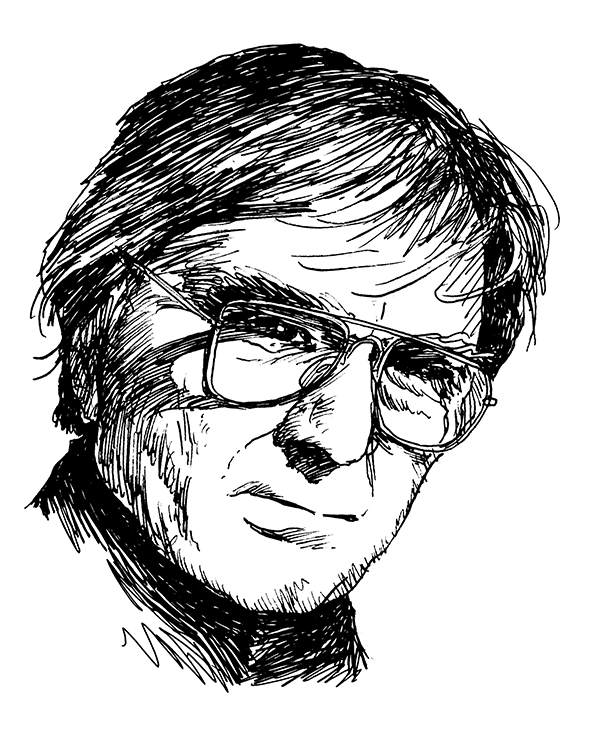A few days before I was set to interview Robert Coover, his new novel arrived in the mail—The Brunist Day of Wrath, a thousand-page doorstop. I knew I wouldn’t get through it before we met, but I didn’t realize how guilty I felt about this until the first thing I heard myself say after our introduction was “Your publicist sent me the new book, but I wasn’t able to finish it.” Coover looked at me with a severe expression and, in his gentle growl, he said, “You should’ve read it.” Then he smiled.
The post–World War II era was a transformative time for American literature. It brought, among many other things, postmodernism, metafiction, and maximalism. Most often grouped with other muscular male writers like Thomas Pynchon, Don DeLillo, William H. Gass, and John Barth, Robert Coover was one of the prominent practitioners of this period, publishing the wildly controversial The Public Burning (a Cold War phantasmagoria that includes Richard Nixon masturbating to Ethel Rosenberg) as well as countless other ecstatically weird, daring books.
As luck would have it, I got to spend a large part of a day with Coover. After a reading he gave at USC, we went to a lunch where I chatted with his wife, Pilar, a Spanish tapestry artist whom he met in the days of Franco. After lunch I drove the couple to their bed-and-breakfast. Coover was in a melancholy mood and told me so; he had just gotten news that a close friend was very ill. (Coover is in his eighties and so are most of his peers.) But as we sat down in the drawing room, he was good-humored and eager to discuss his life and work.
—Aaron Shulman
I. UNCLE SAM IS THE MASTER OF CEREMONIES
THE BELIEVER: The Brunist Day of Wrath just came out, the sequel to your first novel, The Origin of the Brunists, published forty-eight years ago. How did that happen?
ROBERT COOVER: It’s a kind of pattern of my writing that I’ve tended to jot down notes or outline a little something and set it aside and not come back to it till years later. That pattern of letting things hibernate for a while has been a long one. In the case of The Brunists, it was more difficult, because I had left behind that kind of writing. In fact, I left it behind before I began the first book, and had to kind of fight off the desire to get into the writing (that became difficult for everyone) to complete it. So as I was doing that, I just naturally thought of other possible books that might spring from it—some of them not at all part of what’s happened since, some of...
You have reached your article limit
Sign up for a digital subscription and continue reading all new issues, plus our entire archives, for just $1.50/month.
Already a subscriber? Sign in





